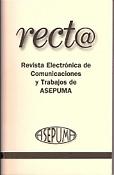Estudio de Viabilidad Económica para el Tratamiento de Aguas Residuales a través de un Análisis Coste Beneficio
Keywords:
tratamiento aguas residuales, análisis coste-beneficio, beneficio ambiental, viabilidad económica, precios sombra, funciones distanciaAbstract
water is recognized by Water Framework Directive. Moreover, wastewater treatment has become a progressive important since the early 1970s as a result of general concern about the problem of deterioration water bodies quality. The main aim of wastewater treatment is obtain an effluent that does not cause negative impacts on the environment and, therefore now wastewater treatment constitutes one of the major measure taken to improve the quality of the receiving environment. In this context, a number of methodologies are applied as support into the decision-making process. One of the most accepted method is the Cost-Benefit Analysis. Therefore, in this paper is carried out an empirical application of this methodology in the field of wastewater treatment. Comparison of the environmental benefits derived from the wastewater treatment with the required costs provides a useful indicator for the economic feasibility of these facilities.
Downloads
Publication Facts
Reviewer profiles N/A
Author statements
Indexed in
-
—
- Academic society
- N/A
- Publisher
- UMA Editorial. Universidad de Málaga
Downloads
Published
How to Cite
Issue
Section
License

This work is licensed under a Creative Commons Attribution-NonCommercial 4.0 International License.





